Developer Blog: Sound Design
In this developer blog, Sound Designer Anton highlights what it takes to add to and administer an already great sound landscape (soundscape) present in Vermintide 2.
My name is Anton and I’ve been working as a sound designer at Fatshark and Vermintide 2 for the past two and a half years. I have been working as a sound designer for the past ten years and have been working with and around music and sound for as long as I can remember.
Trivia about me:
I have the best dog named Håkan
I can tie my shoes really fast (worked part-time in a shoe store for a couple of years)
I’ll turn off a movie or show if they have bad-sounding doors.
In this developer blog, I’d like to highlight what it takes to add to and administer an already great sound landscape (soundscape) present in Vermintide 2. Mostly, I want to highlight some details in the sound design of Vermintide 2.
On Vermintide 2 we currently have two sound designers: myself and David. I create and implement most of the sound effects while our audio lead, David, handles the VO. Both of us started working at Fatshark post-launch of Vermintide 2, so we’ve worked a lot with managing the already great soundscape while still evolving and exploring new ideas.
How do we do that? Well - I try to incorporate my voice in as many assets as I can, literally. As of now, I’ve been a rat in a hat, Sienna's skeletons, a giant pig in the Tower of Treachery, dying seagulls in Karak Azgaraz, Belakor’s flying skulls, poxwalker D (in Darktide), and now a lighthouse. Because I had a planned vacation, David got the honor of voicing our Nurglings - and I’m very jealous.
How I created the sounds for The Lighthouse
The lighthouse would be the centerpiece of the level, and it is possessed by Nurgle. Then and there I knew it needed some cool sounds. Obviously. When I started working on the first sound concepts, the gameplay implications were wild. I wanted to muffle all other sounds when you’re hit by the light beam emitting from the lighthouse. When you're hit by the beam, voices would start whispering to you. All of these ideas were fun but from a gameplay standpoint, they were not feasible. However, the ideas were not in vain.
While working on this, our writer Matt Ward recorded some voice lines that we could use for testing and prototyping. Matt did a great job, but I wanted to test with a more guttural approach to the Grandfather of Sickness. And how did I achieve that? You guessed it - I recorded myself.
Sidenote - I tend to record myself because it's very easy to iterate, press record, press export, start the game, listen, and do it again until you get the feeling right. I’m very easy to direct when I’m the director.
To make my voice sound like an ancient God of Chaos I used a lot of effects. I recorded myself at a very high sample rate, that’s a trick used when you want to change the pitch of the voice more freely without quality loss. Then I added my usual effects, compression, eq, delays, and reverbs. But something was still missing. It sounded a bit generic. Then I remembered an effect that could modify and blend multiple sounds in a very interesting way. I found this recording of stirring macaroni that sounded perfectly mushy, gross, wet, and sticky. That worked out great to get an even more guttural sound to my voice.
However, I was still not happy, it still sounded a bit human. Then I remembered Matt’s recordings. What would happen if I blended his voice lines with mine and added the macaroni? Success! It sounds so strange, so big, so gross in a cool way.
And this was only one layer. We still thought it would be too intrusive to have this played for the entire duration of the level. We also wanted to save the big guns for the big end event. I designed some drones with some synthesizers and rumbles, whispers, and gore. This would become what you hear when you're far away. In the level, I added some zones where it’s not as audible, so you get natural dynamics in the soundscape.
I would love to talk even more about the process, but hopefully, this gives a small insight into the sound design workflow. It was a lot of trial and error, implementations, attenuation curves, balancing, playtesting, playtesting, and playtesting. In the end when we added the wonderful music from our composer Two Feathers it all came together.
With all this said, was this the most fun sound design task? No, I like designing rain the most, but that could be an entire blog post by itself.
Thank you for your time, and the next time you hear a random whuaaaargh remember - it’s probably me.



